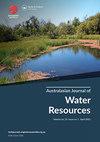支持为土著人民的土地利用机会评估设计有用和相关的整体框架
IF 2.2
Q2 WATER RESOURCES
引用次数: 5
摘要
在新西兰奥特罗瓦地区,如何利用土地对管理水质至关重要。Māori和non-Māori社区需要决策框架,使他们的价值观和优先事项能够为土地使用选择提供信息。然而,很少有可用的框架能够满足Māori社区的需求。构建对Māori和non-Māori土地管理者都具有真正效用的决策框架是具有挑战性的,因为他们与“地”(土地)、“水”(水)和“地”(环境)的关系存在差异。此外,Māori在其决策中可以利用不同于传统上基于科学的框架所包含的数据类型和格式。本文旨在帮助非土著研究人员理解,如果一个针对广泛受众的框架对土著用户具有真正的相关性和实用性,那么它所需要的开发过程和设计特征。为了实现这一目标,我们使用了Cash等人的可信度、显著性和合法性框架的修改版本来评估一系列土地利用决策框架。我们讨论了为什么以科学为基础的整体论概念与Māori世界观所体现的概念不同。我们的结论是,必须与Māori建立真正的伙伴关系,共同制定框架。本文章由计算机程序翻译,如有差异,请以英文原文为准。
Supporting the design of useful and relevant holistic frameworks for land use opportunity assessment for indigenous people
ABSTRACT Choices about how to use land are critical to efforts to manage water quality in Aotearoa-New Zealand. Māori and non-Māori communities need decision-making frameworks that enable their values and priorities to inform land use choices. However, few of the available frameworks meet the needs of Māori communities. It is challenging to construct decision-making frameworks that have true utility for both Māori and non-Māori land stewards because of differences in their relationships with the whenua (land), the wai (the water) and te taiao (the environment). Additionally, Māori may utilise different types and formats of data in their decision-making from those traditionally encompassed by science-based frameworks. This paper aims to help non-indigenous researchers understand the required development processes and design features if a framework aimed at a broad audience is to have genuine relevance and utility for indigenous users. To achieve this, we utilised a modified version of Cash et al.’s Credibility, Salience and Legitimacy framework to evaluate a range of land use decision-making frameworks. We discuss why science-based concepts of holism are not the same as those embodied by a Māori worldview. We conclude that it is essential to co-develop frameworks in genuine partnership with Māori.
求助全文
通过发布文献求助,成功后即可免费获取论文全文。
去求助
来源期刊

Australasian Journal of Water Resources
WATER RESOURCES-
CiteScore
5.10
自引率
21.90%
发文量
25
期刊介绍:
The Australasian Journal of Water Resources ( AJWR) is a multi-disciplinary regional journal dedicated to scholarship, professional practice and discussion on water resources planning, management and policy. Its primary geographic focus is on Australia, New Zealand and the Pacific Islands. Papers from outside this region will also be welcomed if they contribute to an understanding of water resources issues in the region. Such contributions could be due to innovations applicable to the Australasian water community, or where clear linkages between studies in other parts of the world are linked to important issues or water planning, management, development and policy challenges in Australasia. These could include papers on global issues where Australasian impacts are clearly identified.
 求助内容:
求助内容: 应助结果提醒方式:
应助结果提醒方式:


